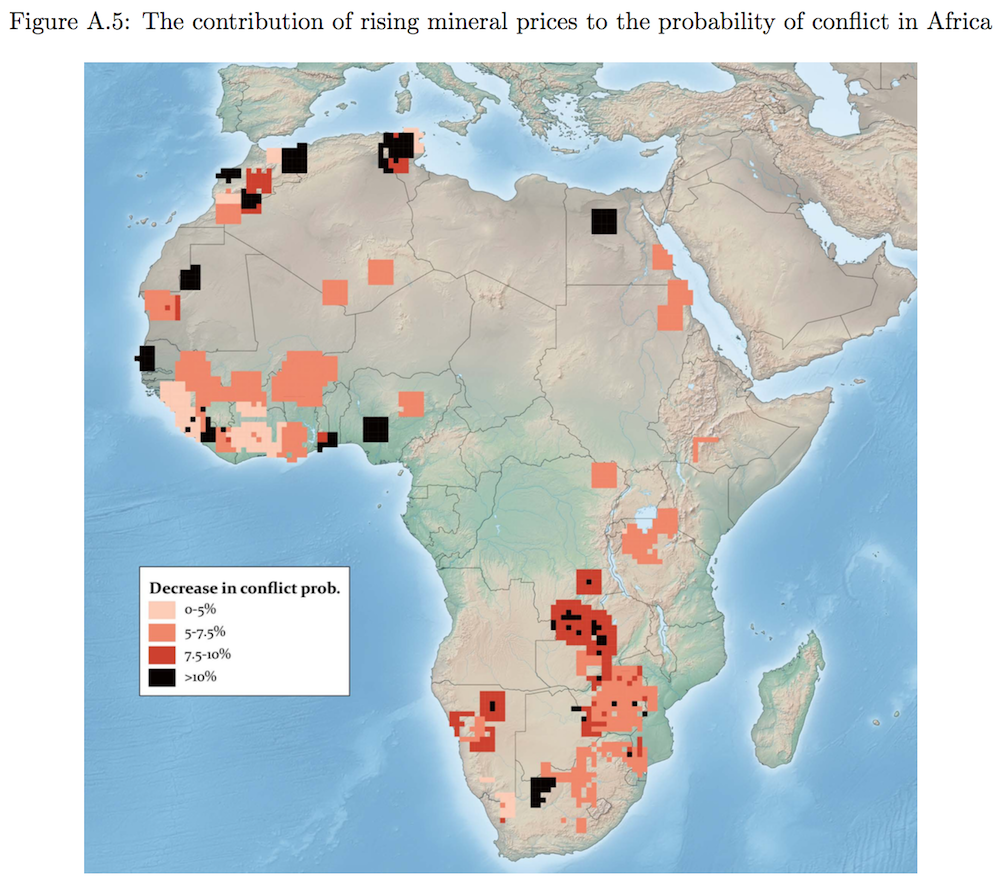Guest post by Jeff Mosenkis of Innovations for Poverty Action. It’s a puzzle why more people don’t use long-acting reversible contraceptives like IUDs or hormone shots. Berk Ozler reports on qualitative findings from Cameroon about why adolescent girls don’t seem interested in them. A new working paper suggests that how refugees fare economically in the U.S. is heavily dependent on at what age they arrive, perhaps because learning English is easier if they come earlier. The authors estimate over their first 20 years in the U.S. refugees pay about ,000 more in taxes than they receive in benefits. (h/t Dylan Matthews) J-PAL has a fellowship for quantitative-oriented Ph.D. students to work on data transparency from their home universities, the June 30 deadline is approaching: Our
Topics:
Jeff Mosenkis (IPA) considers the following as important: birth control, conflict, development, Economics, girls, health, human rights, J-PAL, links, mining, miscellany, news, Research, women
This could be interesting, too:
Lars Pålsson Syll writes Schuldenbremse bye bye
Lars Pålsson Syll writes What’s wrong with economics — a primer
Lars Pålsson Syll writes Krigskeynesianismens återkomst
Lars Pålsson Syll writes Finding Eigenvalues and Eigenvectors (student stuff)
Guest post by Jeff Mosenkis of Innovations for Poverty Action.
- It’s a puzzle why more people don’t use long-acting reversible contraceptives like IUDs or hormone shots. Berk Ozler reports on qualitative findings from Cameroon about why adolescent girls don’t seem interested in them.
- A new working paper suggests that how refugees fare economically in the U.S. is heavily dependent on at what age they arrive, perhaps because learning English is easier if they come earlier. The authors estimate over their first 20 years in the U.S. refugees pay about $21,000 more in taxes than they receive in benefits. (h/t Dylan Matthews)
- J-PAL has a fellowship for quantitative-oriented Ph.D. students to work on data transparency from their home universities, the June 30 deadline is approaching:
Our fellowship program offers financial support (tuition assistance of up to $12,000 and a stipend of $13,000) for one semester (approximately 4.5 months) for current PhD students. While preference will be given to students from economics programs, graduate students from other disciplines with strong quantitative and programming skills (STATA, R etc.) are very welcome to apply. During the fellowship, students will work with our affiliated professors from dozens of universities around the world, re-analyzing RCTs from scratch (starting with the creation of the data set from “raw survey” data, up to production of the final econometric analysis included in the working papers).
- The AEA’s chart of the week above, “The Resource Curse In Action,” overlays geocoded data of mines and areas of conflict, comes from this paper showing how conflicts in Africa rose around mines as commodity prices increased. Also on mines:
- Another paper finds sanctions in the Dodd-Frank act against conflict minerals in the DRC:
…increased the probability of infant deaths in villages near the policy-targeted mines by at least 143 percent. We find suggestive evidence that the legislation-induced boycott did so by reducing mothers’ consumption of infant health care goods and services.
- I recall (but can’t find now) a story suggesting that creating certified mineral providers whom companies could source from led to worse conditions for the workers because it created monopolies who could further exploit them.
- A former illegal miner in Sierra Leone describes how he paid for his start in college with a portion of the proceeds from one single diamond he found, and is now a BBC reporter.
- Angrist, Lavy, Leder-Luis, & Shany, re-examine “Maimonides Rule” (named for the Medieval Jewish philosopher), about the relationship between class size and student achievement. While it applied in Israeli class data from 1991, it does not appear in more recent data. (h/t Dina Pomeranz)
Though it turns out, Maimonides himself was railing against absent teachers (a current problem in many countries) back in 12th Century Egypt (h/t Josh Yuter)


